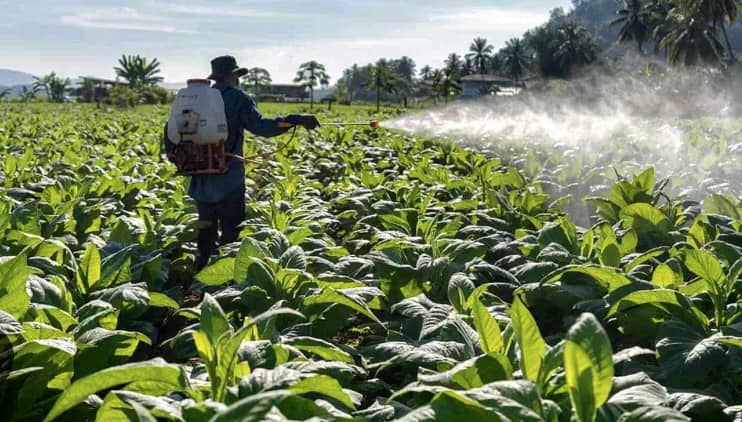The following pesticides are commonly used for tobacco farming in Zimbabwe:
- Imidacloprid: This systemic insecticide is employed to control various sucking insects like aphids and whiteflies, which can be problematic pests in tobacco crops.
- Chlorpyrifos: Used to manage a range of chewing and sucking insects, including caterpillars, beetles, and aphids.
- Thiamethoxam: This systemic insecticide exhibits broad-spectrum activity against many chewing and sucking insects. It can effectively control pests like caterpillars, aphids, and leafhoppers.
- Bifenthrin: An effective pyrethroid insecticide that targets a wide range of pests, including caterpillars, beetles, and aphids. It offers both contact and residual activity.

Please be aware that pesticide recommendations may change over time. It is crucial to consult local agricultural extension services or agricultural experts in Zimbabwe for the most up-to-date and region-specific recommendations. They will provide guidance on approved pesticides, application rates, timing, and any legal restrictions or requirements.
Always read and follow the instructions, safety precautions, and dosage rates specified on the pesticide labels. Adhere to any local regulations or restrictions regarding pesticide use and consult with experts for precise recommendations tailored to your specific farming conditions and pest pressures.








0 Comments